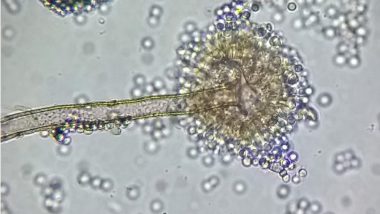Today is World Aspergillosis Day 2019, a day dedicated to Aspergillosis, a set of diseases caused by the fungus Aspergillus. Every year on February 1, the day is observed to focus attention on the diseases, and to spread awareness about its treatment and prevention. Aspergillus is a common fungus or mold that can be found indoors and outdoors. Many people unknowingly inhale the infectious spores, putting them at risk of the diseases. There are different types of the aspergillosis, ranging from mild to serious. These include – allergic bronchopulmonary aspergillosis, allergic aspergillosis sinusitis, aspergilloma, chronic pulmonary aspergillosis, invasive aspergillosis and cutaneous (skin) aspergillosis. If these infections aren’t treated on time, they can cause permanent damage to the lungs. That’s why it’s important to create dialogues around the disease and increase awareness.
What Are The Symptoms of Aspergillosis?
The symptoms of aspergillosis depend on the subtype of the disease. According to the Center for Diseases Prevention and Control (CDC), following are some of the symptoms of the disease.
Symptoms of Allergic Bronchopulmonary Aspergillosis:
- Wheezing
- Breathlessness
- Cough
- Fever
Symptoms of allergic Aspergillus sinusitis:
- Stuffiness
- Runny nose
- Headache
- Impaired sense of smell
Symptoms of Aspergilloma:
- Cough
- Blood in sputum
- Shortness of breath
Symptoms of Chronic pulmonary aspergillosis:
- Weight loss
- Cough
- Blood in sputum
- Fatigue
- Breathlessness
Symptoms of Invasive aspergillosis:
- Fever
- Chest pain
- Cough
- Blood in sputum
- Breathlessness
Who is at Risk?
People who live in environments where there are microscopic Aspergillus spores in the air are mostly at risk. While our immune system is robust enough to fight off most of the infection, some people with weakened immunity are at risk. Home Remedy of the Week: Best Natural Medicines for Preventing and Treating Urinary Tract Infection (UTI).
People who have asthma, cystic fibrosis, tuberculosis, COPD, weakened immune systems, cancer patients undergoing treatment, people who are taking high doses of immunosuppressants are more vulnerable to aspergillosis. Winter Pollution: Expert Suggests Tips to Protect Yourself From Toxic Air This Season.
How is Aspergillosis Treated?
Allergic forms of the disease are treated with antifungal medicines like itraconazole and corticosteroids. Invasive aspergillosis is treated with voriconazole, posaconazole, itraconazole, caspofungin, micafungin and isavuconazole. Severe cases may warrant surgery.
How To Prevent Aspergillosis
According to CDC, it’s difficult to prevent aspergillosis since the fungal spores are present in most environments. People who have a compromised immune system, should be more wary of contracting the diseases.
Protect yourself from the environment by wearing respirators and face masks to avoid inhaling the spores.
Stay away from manual work like gardening and farming that may involve coming in contact with soil and dust.
Protect your extremities with shoes, socks and gloves while you indulge in outdoor activities.
To prevent skin infections due to the spores, wash your hands and legs with medicated soap.
(The above story first appeared on LatestLY on Jan 31, 2019 08:55 PM IST. For more news and updates on politics, world, sports, entertainment and lifestyle, log on to our website latestly.com).













 Quickly
Quickly


